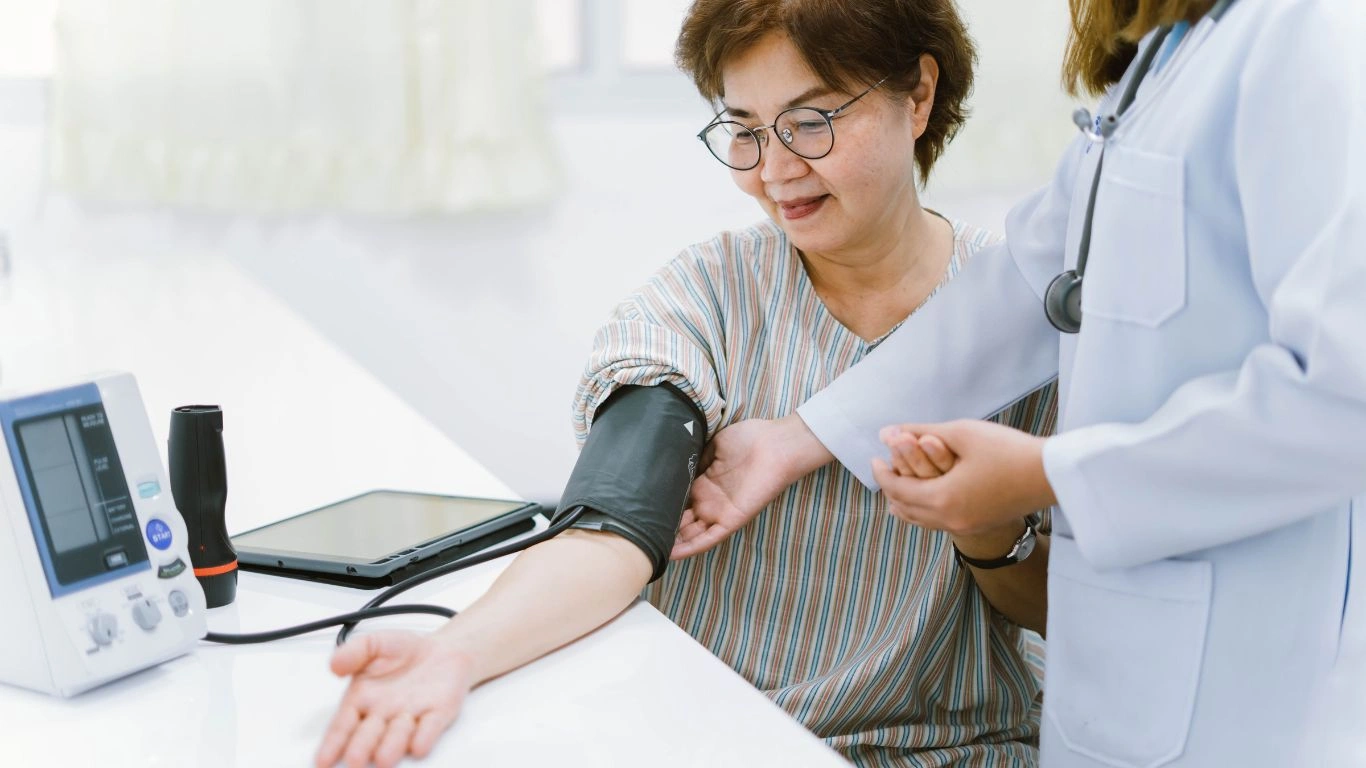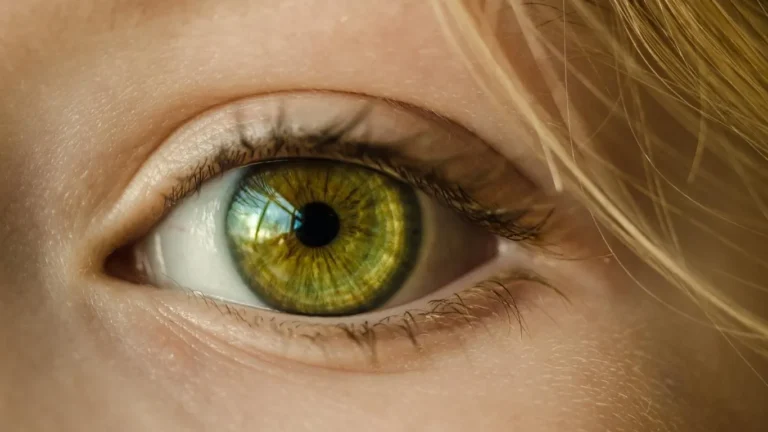Dangerous Signs: High Blood Pressure and Vision Flashes Explained
If you’ve ever wondered whether there’s a link between high blood pressure and vision flashes, you’re not alone. As a physician in Internal Medicine specializing in hypertension management, I’ve had countless patients come into my clinic worried about sudden sparkles, flickers, or lightning-like streaks in their vision. Some even describe it as a quick camera flash off to the side of their eye. It’s alarming, for sure — and understandably so. Most people don’t connect their blood pressure to their eyesight until something weird happens. So, let’s break this down together and talk about what’s actually going on when your blood pressure gets too high and your vision decides to throw a little light show.
What’s Going On With Those Vision Flashes?

Flashes Aren’t Just “Eye Problems” — Sometimes It’s Vascular
One of the first things I try to explain to my patients is that the eyes are not just windows to the soul—they’re windows to your vascular system too. Our eyes have some of the tiniest and most delicate blood vessels in the entire body. When blood pressure gets too high, these vessels are under constant stress. That stress can cause a few things to go haywire, including your retina reacting in odd ways.
In fact, some patients with uncontrolled or poorly managed hypertension experience what’s called hypertensive retinopathy. This can lead to swelling in the retina, hemorrhages, and yes—those unpredictable flashes of light. It’s not always painful, which makes it easy to ignore, but ignoring it is the last thing you want to do.
Real Talk From Clinic Life
Let me tell you about a patient of mine, we’ll call her Maria. She was 52, worked two jobs, and her blood pressure had been all over the place for years. She came in complaining that she was seeing “lightning” in her peripheral vision every few hours. Her optometrist thought it might be eye strain, but something didn’t sit right with me. I ran a quick in-office blood pressure check — she was at 188/110. We got her on a treatment plan immediately. Turns out, the flashes were her body waving a red flag.
How High Blood Pressure and Vision Flashes Are Connected

Blood Vessels in the Eye Aren’t Built for Pressure
Your retina relies on a steady, healthy supply of blood. When your blood pressure spikes, it’s like turning a garden hose into a power washer. The capillaries can’t handle it. This may result in:
- Retinal artery narrowing – Less blood gets to the eye tissue.
- Microaneurysms – Tiny bulges that can leak or rupture.
- Optic nerve damage – Your “visual cable” starts to fray under pressure.
All of this can culminate in those disturbing visual disturbances—whether it’s brief flashes, floaters, or blurry patches. And yes, it’s often more serious than just a little fatigue or dry eyes.
Is It an Emergency?
Short answer? Sometimes, yes. If someone with hypertension sees flashes accompanied by loss of vision, eye pain, or a curtain-like shadow, we worry about things like retinal detachment or even a hypertensive crisis. I always tell my patients: “When your eyes are trying to tell you something, don’t ignore them.”
Even something seemingly minor can be the tip of the iceberg. These symptoms might not just be about the eyes — they could be your body screaming for cardiovascular attention.
Why You Shouldn’t Wait to Get It Checked Out

Waiting Could Mean Permanent Damage
One of the hardest conversations I’ve had with a patient was explaining that we couldn’t reverse the damage done. She had delayed treatment for years, brushing off vision changes as “just stress.” By the time she came to me, the retinal damage had set in. Her blood pressure? Off the charts. It’s tough news to deliver, and even tougher for patients to hear.
So if you’re dealing with high blood pressure and vision flashes, don’t play the waiting game. Whether you’re managing your condition well or still figuring it out, these symptoms deserve attention. You might just catch something early—and in the world of eye health, early means everything.
Warning Signs You Shouldn’t Ignore

When Flashes Become a Red Flag
Let me just say this—if you’re seeing flashes of light and you know your blood pressure has been acting up, that’s not the time to Google symptoms and cross your fingers. Trust me, I’ve seen too many patients try to wait it out. Those little visual glitches? They could be the body’s SOS call.
Here are some symptoms I tell my patients to take seriously when they show up alongside high blood pressure and vision flashes:
- Sudden, intense headache – Especially if it’s unlike your usual migraines.
- Blurry or dimmed vision – Think of it like your vision wearing sunglasses indoors.
- Nausea or confusion – These can signal a hypertensive crisis.
- Seeing spots, halos, or floaters – More than just annoying, these could be signs of retinal involvement.
If anything on that list rings a bell, make an appointment—like, yesterday. I’m not trying to scare you, but catching things early can literally preserve your sight.
Quick Tip: Keep a Symptom Journal
Okay, I know it sounds like homework, but jotting down when you experience these flashes, what you were doing, and what your BP was (if you know it) can help your doc pinpoint triggers. I had a patient once who noticed hers always flared up after a stressful morning commute. Turned out, her pressure was spiking at specific times of day, which helped us fine-tune her meds.
How We Diagnose and Monitor Vision Changes in Hypertensive Patients

What You Can Expect at the Clinic
Now, when you come in with complaints of vision flashes and a history of high blood pressure, we don’t just guess. Here’s the kind of workup you can expect in my office:
- Blood Pressure Monitoring – Sometimes across multiple visits or with a home monitor to catch patterns.
- Fundoscopic Exam – That’s where we shine a light into your eye to check your retina and optic nerve.
- OCT (Optical Coherence Tomography) – A fancy scan that shows cross-sections of the retina. Super helpful if we suspect swelling or fluid leakage.
- Referral to an ophthalmologist – Especially if I spot signs of hypertensive retinopathy or suspect a more urgent eye issue.
These tests help us get a clear picture (no pun intended) of what’s going on behind the scenes. Hypertension doesn’t act the same in everyone, so tailoring your care is key.
Treatment Approaches: Getting Ahead of the Problem

Medications: More Than Just a Pill
Here’s a common scenario: I start a patient on blood pressure meds, and two weeks later they’re frustrated because they’re still seeing flashes. It’s important to know that getting your BP under control is a process, not a quick fix. Some medications take time to reach full effect, and we might need to adjust the dose or add a second med.
Some of the usual go-to antihypertensives I might prescribe include:
- Calcium channel blockers – Great for vasodilation and reducing vessel stress.
- ACE inhibitors or ARBs – Help protect the kidneys and eyes by lowering systemic pressure.
- Diuretics – Useful if fluid overload is contributing to higher BP readings.
But meds are only half the battle. This is where lifestyle swoops in to help.
Day-to-Day Habits That Make a Difference
One thing I always emphasize to my patients is that long-term control isn’t just about what’s in your pill box. It’s also about what’s on your plate, how you move, and even how you manage stress. Yeah, I know—easier said than done. But small changes add up.
Here are a few lifestyle tweaks I regularly recommend (and yes, I follow these myself):
- Cut the sodium – Even modest reductions can lead to real BP improvements.
- Hydrate smartly – Dehydration can sometimes raise your BP.
- Get consistent sleep – Poor sleep spikes cortisol, and that can elevate BP.
- Move your body – Walking, biking, or dancing in your kitchen all count.
- Manage stress – Meditation, therapy, quiet time… whatever works for you.
One of my favorite stories is from a retired teacher who started doing 15-minute chair yoga and cutting back on processed foods. Her BP dropped by 12 points in just two months—and the vision flashes? Gone.
Preventing Future Episodes of Vision Flashes

Staying Ahead of the Curve
Once we’ve addressed the immediate issue—got your blood pressure under control, ruled out retinal emergencies, and calmed down those pesky flashes—the next big move is preventing them from coming back. Because here’s the thing: your eyes are like smoke detectors. If they’ve gone off once, there’s a good chance the fire could spark again.
One patient of mine, Tom, was a marathon runner in his 60s—super fit, but he thought that gave him a pass on checking his BP regularly. Spoiler alert: it didn’t. He ended up with retinal bleeding after ignoring recurring light flashes. Lesson? Even if you “feel fine,” don’t assume everything’s okay under the hood.
Consistency is Your Best Friend
Whether it’s medication, diet, exercise, or stress management, consistency is what keeps your blood pressure stable. Fluctuating BP is a common trigger for vision-related symptoms. I often recommend setting reminders for BP checks or using apps that track trends. The data doesn’t lie, and it helps us fine-tune your treatment.
And don’t forget your annual eye exams. Your ophthalmologist can detect signs of hypertensive damage long before symptoms pop up. It’s like getting a sneak peek at how your blood pressure is affecting your body in real time.
Understanding the Long-Term Risks to Vision and Brain Health

It’s Not Just About the Eyes
When you experience high blood pressure and vision flashes, it’s more than just a one-off event. It can be a sign that the pressure in your blood vessels is affecting sensitive areas beyond your eyes—namely, your brain. I don’t want to sound dramatic, but this is where things can get serious.
Chronic hypertension is linked to increased risk of:
- Stroke – Blockages or bleeds in the brain can cause sudden vision loss.
- Vascular dementia – Long-term pressure damages the small vessels in the brain.
- Optic nerve atrophy – Gradual damage can result in permanent vision loss over time.
I once had a patient come in for vision flashes, and a CT scan revealed they’d actually had a small stroke. It hadn’t caused the classic symptoms like slurred speech or weakness—just those odd flashes. That case stuck with me because it reminded me that the eyes can whisper when the rest of the body stays silent.
Think Holistically About Your Health
As someone deeply rooted in internal medicine, I always advocate for a full-body approach. Eyes, heart, brain—it’s all connected. Managing blood pressure doesn’t just protect your vision. It’s a long-term investment in your entire health span, not just your lifespan.
When to Seek Emergency Care
Trust Your Gut (And Your Eyes)
Okay, let’s get real for a second. If you’re ever unsure about whether what you’re experiencing is serious, it’s better to be safe than sorry. I always tell my patients: “If something feels off, don’t wait for it to get worse.” Especially if you notice:
- Sudden loss of vision in one or both eyes
- Flashes followed by dark shadows or a ‘curtain’
- Severe headache, chest pain, or difficulty speaking
These are classic warning signs of retinal detachment, stroke, or hypertensive crisis. If you’re seeing fireworks in your vision and your BP is sky-high, get to an ER. Don’t try to ride it out with a nap and a glass of water.
Let Your Medical Team Work Together
Your eye doctor, primary care physician, and in many cases a cardiologist—all of us need to be in the loop when you have symptoms like these. It’s team medicine at its best. I often coordinate with eye specialists for my patients because catching an issue from multiple angles leads to better outcomes. Trust me, your body will thank you later.
References
- https://www.aao.org/ – American Academy of Ophthalmology
- https://www.heart.org/ – American Heart Association
- https://www.cdc.gov/ – Centers for Disease Control and Prevention
- https://www.ncbi.nlm.nih.gov/ – National Library of Medicine
Disclaimer
This article is for informational purposes only and does not substitute professional medical advice, diagnosis, or treatment. Always consult your physician or qualified healthcare provider with any questions you may have regarding a medical condition or symptoms. If you’re experiencing a medical emergency, call 911 or seek immediate medical attention.

Dr. Gwenna Aazee is a board-certified Internal Medicine Physician with a special focus on hypertension management, chronic disease prevention, and patient education. With years of experience in both clinical practice and medical writing, she’s passionate about turning evidence-based medicine into accessible, actionable advice. Through her work at Healthusias.com, Dr. Aazee empowers readers to take charge of their health with confidence and clarity. Off the clock, she enjoys deep dives into nutrition research, long walks with her rescue pup, and simplifying medical jargon one article at a time.






